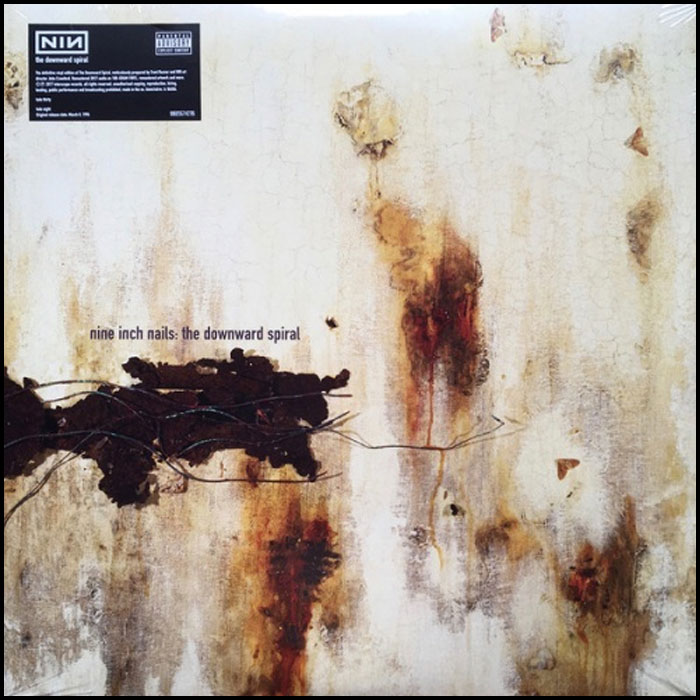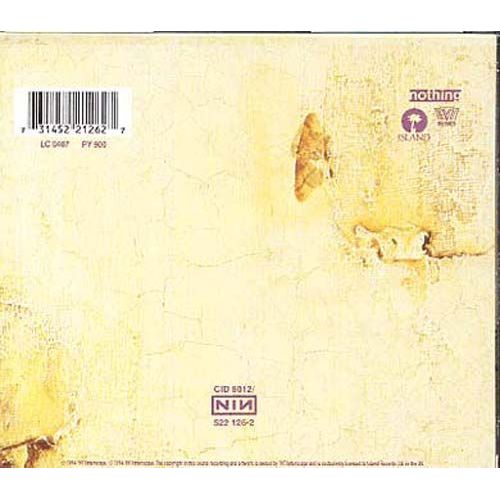

On Downward Spiral, “March of the Pigs” foreshadows these events with Reznor calling out society’s greed and superficiality, maniacally responding, “Don’t like the look of it/ Don’t like the taste of it/ Don’t like the smell of it/ I want to watch it come down.”īut before the credit card towers would topple to the ground in the film’s closing scene, the protagonist’s dissatisfaction and numbness to life first leads to self-harm as he beats himself senseless (or gets others to do it for him), sustains a terrible chemical burn, and further abuses himself. Self Destruct” much earlier than Fincher’s protagonist, one can easily picture Tyler Durden’s insomnia-fueled emergence and growing influence when Reznor sings on “The Becoming”, “It’s a part of me/ It’s inside of me/ I’m stuck in this dream/ It’s changing me.” The album begins, and we’re instantly transported into the mind of a tormented soul as Reznor sings over harsh industrial programming, “I am the voice inside your head/ And I control you.” Though NIN’s protagonist is aware of his conflict with “Mr. Though this working relationship between Reznor and Fincher has been essential to these films, it’s the indirect connection between The Downward Spiral and Fight Club that remains Nine Inch Nails’ greatest contribution to the world of film. The acclaimed director would later work with Reznor and producer Atticus Ross, who collaboratively composed the scores for Fincher’s The Social Network, The Girl with the Dragon Tattoo, and Gone Girl. Before Fight Club, Fincher had used a remix of “Closer” in the opening credits of his film Se7en. He claimed in a tweet that Fight Club was “mostly written with playing on repeat in the background.” Of course, director David Fincher was also highly influenced by the work of Nine Inch Nails. Palahniuk happened to be one of those affected listeners. Though the album would go on to become an iconic piece of rock history, it began as Reznor’s humble attempt to share his humanity with the world, hoping some listeners would relate to the raw emotion it expressed. The album (which just celebrated its 25th anniversary) was described by bandleader Trent Reznor as an exercise in “honesty and nakedness of emotion,” which “looks at certain vices as being ways of trying to dull the pain of what the person is hiding.” It began, like most great works of art, with an honest reflection and assessment of self, even the dark and horrific parts Reznor would rather not deal with. Though Palahniuk’s own life experiences served as the main inspiration for the story, there was, in fact, another iconic piece of ‘90s art that deeply informed the story, both in its content and its dark tone: Nine Inch Nails’ 1994 album, The Downward Spiral. But three years before Fight Club hit theaters, the story was conceived and published by a diesel mechanic from Portland named Chuck Palahniuk. Twenty years ago, David Fincher directed a seminal cinematic masterpiece drenched in existentialism and grime. As The Downward Spiral, which came out on March 8th, 1994, gets another year older, we revisit Thiessen’s article and the shared downward spiral of Reznor and filmmaker David Fincher’s narrator. It has been regarded by music critics and audiences as one of the most important albums of the 1990s, and was praised for its abrasive and eclectic nature and dark themes, although it was scrutinized by social conservatives for some of its lyrics.Editor’s Notes: While it wouldn’t surprise us that a fan of Fight Club might also own a copy of The Downward Spiral, this classic piece by Christopher Thiessen, first published in March of 2019, definitely surprised us with its revelations of just how intertwined the book and its film actually are with Trent Reznor’s masterpiece. The Downward Spiral was a major commercial success, and established Nine Inch Nails as a reputable force in the 1990s music scene, with its sound being widely imitated and Reznor receiving media hype and multiple honors, while diverging into drug abuse and depression.

"March of the Pigs" and "Closer" were accompanied by music videos, with the former shot twice and the latter's heavily censored. The album spawned two singles, " March of the Pigs" and " Closer", in addition to the promotional singles " Piggy" and " Hurt".

The Downward Spiral features elements of industrial rock, techno and heavy metal music, in contrast to the band's synthpop-influenced debut album Pretty Hate Machine (1989), and was produced by Nine Inch Nails frontman Trent Reznor and Flood. It is a concept album detailing the destruction of a man from the beginning of his "downward spiral" to his death by suicide. The Downward Spiral is the second studio album by American industrial rock band Nine Inch Nails, released on March 8, 1994.


 0 kommentar(er)
0 kommentar(er)
